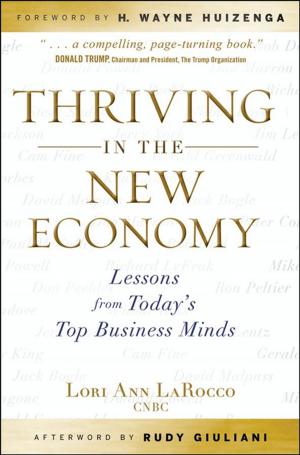Sold on Language
How Advertisers Talk to You and What This Says About You
Nonfiction, Health & Well Being, Psychology, Cognitive Psychology| Author: | Julie Sedivy, Greg Carlson | ISBN: | 9781119996088 |
| Publisher: | Wiley | Publication: | May 3, 2011 |
| Imprint: | Wiley | Language: | English |
| Author: | Julie Sedivy, Greg Carlson |
| ISBN: | 9781119996088 |
| Publisher: | Wiley |
| Publication: | May 3, 2011 |
| Imprint: | Wiley |
| Language: | English |
As citizens of capitalist, free-market societies, we tend to celebrate choice and competition. However, in the 21st century, as we have gained more and more choices, we have also become greater targets for persuasive messages from advertisers who want to make those choices for us.
In Sold on Language, noted language scientists Julie Sedivy and Greg Carlson examine how rampant competition shapes the ways in which commercial and political advertisers speak to us. In an environment saturated with information, advertising messages attempt to compress as much persuasive power into as small a linguistic space as possible. These messages, the authors reveal, might take the form of a brand name whose sound evokes a certain impression, a turn of phrase that gently applies peer pressure, or a subtle accent that zeroes in on a target audience. As more and more techniques of persuasion are aimed squarely at the corner of our mind which automatically takes in information without conscious thought or deliberation, does 'endless choice' actually mean the end of true choice?
Sold on Language offers thought-provoking insights into the choices we make as consumers and citizens – and the choices that are increasingly being made for us.
Click here for more discussion and debate on the authors’ blog:
http://www.psychologytoday.com/blog/sold-language
[Wiley disclaims all responsibility and liability for the content of any third-party websites that can be linked to from this website. Users assume sole responsibility for accessing third-party websites and the use of any content appearing on such websites. Any views expressed in such websites are the views of the authors of the content appearing on those websites and not the views of Wiley or its affiliates, nor do they in any way represent an endorsement by Wiley or its affiliates.]
As citizens of capitalist, free-market societies, we tend to celebrate choice and competition. However, in the 21st century, as we have gained more and more choices, we have also become greater targets for persuasive messages from advertisers who want to make those choices for us.
In Sold on Language, noted language scientists Julie Sedivy and Greg Carlson examine how rampant competition shapes the ways in which commercial and political advertisers speak to us. In an environment saturated with information, advertising messages attempt to compress as much persuasive power into as small a linguistic space as possible. These messages, the authors reveal, might take the form of a brand name whose sound evokes a certain impression, a turn of phrase that gently applies peer pressure, or a subtle accent that zeroes in on a target audience. As more and more techniques of persuasion are aimed squarely at the corner of our mind which automatically takes in information without conscious thought or deliberation, does 'endless choice' actually mean the end of true choice?
Sold on Language offers thought-provoking insights into the choices we make as consumers and citizens – and the choices that are increasingly being made for us.
Click here for more discussion and debate on the authors’ blog:
http://www.psychologytoday.com/blog/sold-language
[Wiley disclaims all responsibility and liability for the content of any third-party websites that can be linked to from this website. Users assume sole responsibility for accessing third-party websites and the use of any content appearing on such websites. Any views expressed in such websites are the views of the authors of the content appearing on those websites and not the views of Wiley or its affiliates, nor do they in any way represent an endorsement by Wiley or its affiliates.]















